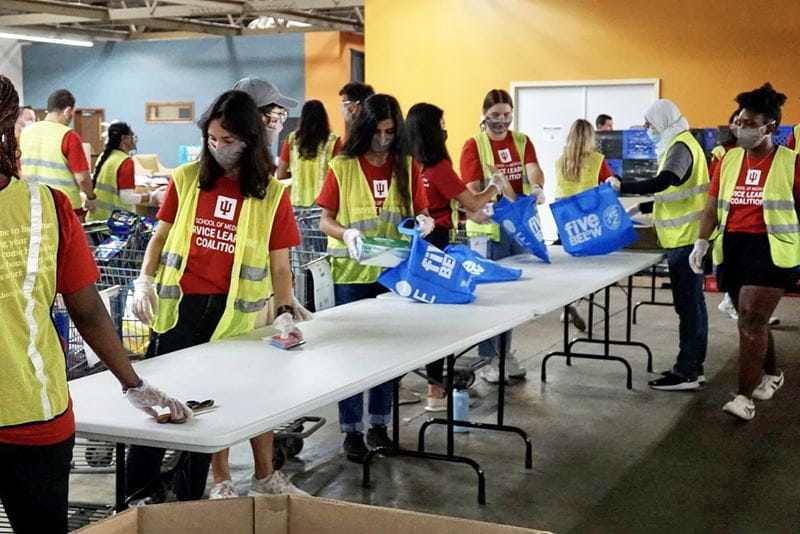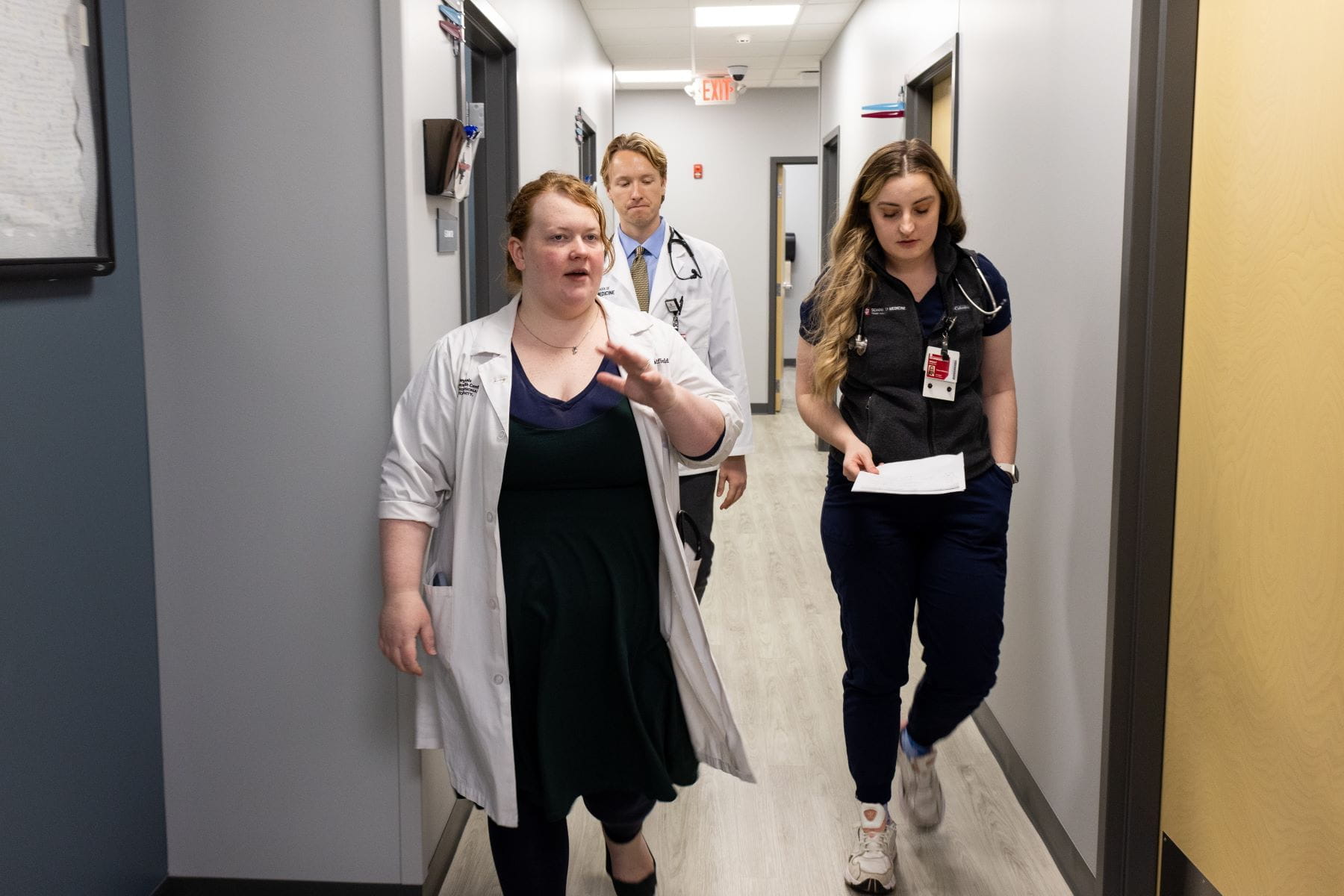Urban Medicine: Caring for your diverse community

Laura Gates May 29, 2024
PEOPLE WHO LIVE in impoverished pockets of metropolitan areas are a medically underserved population often hidden in plain view.
That’s the case in Gary, Indiana, the once booming industrial suburb of Chicago that, after decades of decline, now has a poverty rate nearly three times the state average.
Yet, it is an ideal place to train culturally competent physicians who are passionate about reducing health disparities in such areas. Patterned after the Rural Medical Education Program, the Urban Medicine Program was launched at IU School of Medicine—Northwest-Gary in 2022. It is now recruiting its third class of medical students.
“The goal is to graduate cohorts of doctors who are well-rounded, can understand the importance of social determinants of health and have cultural competence that is integrated into their practice on a daily basis,” said Amy Han, MA, PhD, the campus director for clinical education and co-director of the Urban Medicine and Health Care Disparities Scholarly Concentration.
Students are recruited from urban areas in Indiana and throughout the United States.
“I grew up in an ethnically and racially diverse neighborhood in Brooklyn, New York, where I realized that many of the health challenges my family, friends and neighbors faced were normalized,” said Gabrielle Li, a first-year medical student in the Urban Medicine Program. “At a young age, I started to learn that access to health care looked different to different populations.
“It was difficult for many of my loved ones to access culturally competent care. I want to mend the gap and advocate for these populations.”
Through community engagement, students learn about disparities. They go to health fairs, talk to residents and provide health resource information in partnership with the Gary and East Chicago health departments. They volunteer with local nonprofits on community service projects like cleaning up trash at parks and sorting donated goods at a food bank.
From their first year of medical school, students begin shadowing physicians at the five Federally Qualified Health Centers in Northwest Indiana. During their third year, they work alongside psychiatry residents in IU School of Medicine’s newly established Psychiatry Residency with Regional Care Group, which is filling a critical need for behavioral and mental health care in Northwest Indiana.
John “Quen” Deckbar, a second-year medical student from Nashville, Tennessee, said he is impressed by the “altruistic intentions of my peers.”

“Many are dedicating their free time to act in the interest of those in need of medical services,” he said. “There is a lot to learn from this underserved population that is often not spoken about openly.”
All students in the Urban Medicine Program undertake research projects aimed at reducing health disparities. Li and Satya Sanapati are working with the local Head Start program to analyze the impacts that COVID-19 shutdowns had on child social and emotional development.
“The Urban Medicine Program has taught me about the nuances involved in caring for diverse populations,” Sanapati said. “I’ve learned how to consider the impacts of external social factors, such as one’s environment, education or economic stability, on a patient’s health. I believe these lessons are important for any physician to learn, as they can ensure that no patient falls through the cracks and that a patient is receiving comprehensive and personalized care.”
Fourth-year medical student Daniel Green piloted the Urban Medicine Program before its official launch and has seen its impact grow.
“Dozens of projects have begun that encourage students to contribute their time and talent to causes that benefit the community surrounding the Northwest campus,” he said.
Green is interviewed with residency programs in pediatrics for the next stage of his medical training, but a research project he initiated will be carried forward by a new group of urban medicine students. They will be working with Methodist Hospitals to compile and analyze 22 years of breast cancer screening data; the goal is to eliminate disparities in screening rates and disease outcomes for Black women.
“I’m grateful to the Urban Medicine Program for the opportunity to play a part in starting research with such staying power and impact on our community,” Green said. “I want to continue advocacy and community engagement in my residency and throughout my career, especially relating to maternal and infant health, reducing premature birth incidence, and quality improvement in the NICU (neonatal intensive care unit). I know the skills I developed through the Urban Medicine Program will help me accomplish these goals in my future career.”
Laura Gates
Laura is a senior writer with the Office of Strategic Communications. A native Hoosier, she has 25 years of experience in communications, having worked with newspapers and other media organizations in Indiana and Florida, along with small businesses, community groups and non-profit organizations. Before joining IU School of Medicine in January 2020, she was editor-in-chief of a lifestyle magazine serving the community of Estero, Florida.
